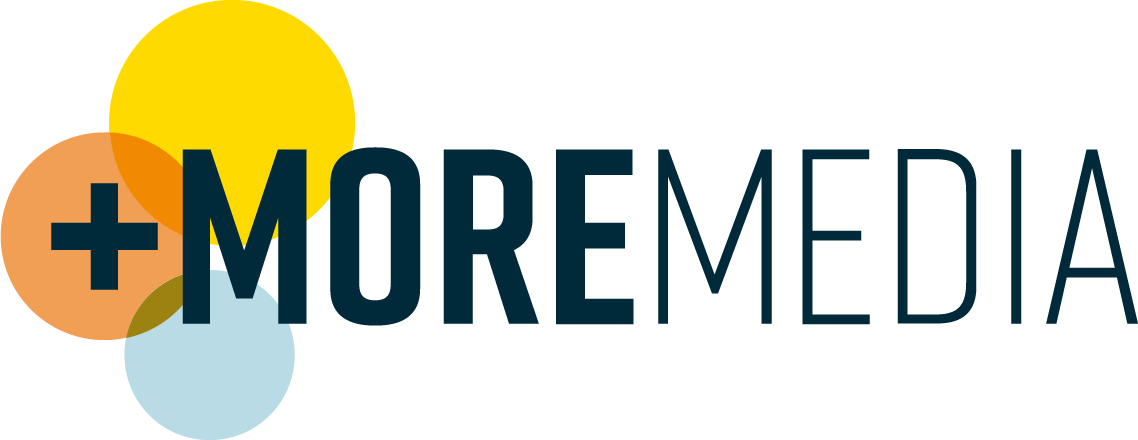North Carolina set for January launch
North Carolina, Vermont signatures, Rhode Island push, bet365 avoids Eubank Jr censure, anti-gambling MPs set up White Paper review +More
Good morning. On today’s agenda:
North Carolina, Vermont get OSB, Rhode Island nears iCasino.
Videoslots the latest to receive a UKGC sanction.
No KO for bet365 on Eubank Jr tweet.
The BGC calls on the government to pressure social media platforms.
UK: Anti-gambling MPs keep the pressure up with White Paper review.
Pagcor is seeking help in the Philippines.
North Carolina sets OSB date
North Carolina OSB gets the Governor’s signature; Rhode Island iCasino still in with a fighting chance.
Oh (North) Carolina: North Carolina Gov. Roy Cooper chose the Spectrum Center in Charlotte to put his signature on HB 347, a bill expanding North Carolina’s sports-betting industry into the mobile realm. With Gov. Cooper signing the bill into law, the timeline for a North Carolina launch has crystallized.
The state has 12 months to launch mobile-betting platforms from the date of the governor’s signature, per the new law.
OSB sites will likely be available far sooner, as the law allows mobile launches as early as January 8, 2024.
The nuts and bolts: North Carolina’s OSB bill is mainly boilerplate:
Betting on college sports is permitted (North Carolina has four top-tier college athletic programs).
Up to 12 OSB sites are permitted under HB 347.
A five-year OSB license comes at a cost of $1m.
Operators are taxed at 18% (promotional deductions are not allowed).
In addition to the 12 licenses, tribes can also launch OSB websites.
The law also permits retail betting locations at select sporting arenas and venues.
Vermont
Vermont also got the OSB go-ahead yesterday when Gov. Phil Scott signed HB 127, which authorizes up to six online sportsbooks.
Licenses will initially cost $500,000 and involve revenue-share agreements with the Department of Liquor and Lottery, although that still needs to be negotiated. So far, the minimum rate will be 20% of revenue.
Rhode Island
Little Rhodey goes big: Rhode Island’s late push to legalize online casinos is alive and kicking after the Rhode Island House Finance Committee approved SB 948 in a 10-2 vote. The bill passed the Senate in a landslide 30-4 vote last week. The House Finance vote sets the stage for a vote on the House floor.
The House has until June 30 to take action, but the legislature could adjourn early if it feels passing the remaining bills are untenable. Where the House stands on the matter isn’t clear.
Further reading on the Rhode Island online casino bill: Can Rhode Island do what others couldn’t and pass an online gambling bill?
** SPONSOR’S MESSAGE ** BettingJobs is the global leading recruitment solutions provider to the iGaming, Sports Betting and Lotteries sectors. Boasting a 20-year track record supporting the iGaming industry, and with a team of experts and world class knowledge, it’s no surprise BettingJobs is experiencing rapid growth with outstanding results. Does your company have plans to expand teams to cope with strong growth and demand?
Contact BettingJobs.com today where their dedicated team members will help you find exactly what you are looking for.
Videoslots settlement
The iCasino operator to pay £2m after being found guilty of multiple RG and AML failures.
Video nasty: The latest action from the UK Gambling Commission sees the operator behind the Videoslots and Mr Vegas brands paying £2m to social responsibility causes after “significant weaknesses” were uncovered in its safer gambling and AML processes.
This is the second time Videoslots’ process has been found wanting by the Commission, which previously issued a £1m regulatory settlement in August 2021.
Among the failures uncovered by the Commission were:
A customer was allowed to deposit and lose almost £100k despite their declared combined income and savings being below that level.
Allowing customers to continue gambling despite displaying signs of harm.
In the area of AML, the Commission found Videoslots allowed a customer who had hit various AML triggers to deposit over £110k without the company conducting an AML review.
Bet365 avoids censure
The UK’s advertising regulator tosses out a complaint against bet365 involving a January tweet promoting Chris Eubank Jr’s boxing match against Liam Smith.
Allow it: The Advertising Standards Authority (ASA) said the social media post did not have a strong appeal to young people, after investigating the matter and taking data from the operator.
The Committee of Advertising Practice code forbids gambling operators from using professional athletes in marketing materials that could sway young people.
Athletes are ranked in different categories within the code, however, from low- to moderate- and high-risk.
Boxing is a more “adult-oriented sport”, argued bet365, putting Eubank Jr in the low- or moderate-risk category.
Only a small percentage of Eubank Jr’s social media following are under the age of 18, the operator said in presenting evidence.
No further action will be taken as the ASA ruled in favor of bet365.
Long story short: Legal experts said the ruling was a useful barometer of regulatory thinking around the use of sporting personalities by operators, but also noted the detailed evidence bet365 was required to submit in support of its argument.
“The ASA’s guidance is not completely clear on the impact of a character being of ‘inherent strong appeal’, given that their profile and following must be assessed either way,” said Melanie Ellis, partner at Northridge Law LLP.
“I interpret this as a risk-based assessment – the higher the inherent appeal, the higher the standard of evidence needed to prove the contrary.”
BGC social media call
Nudge: Meanwhile, the Betting and Gaming Council has written to Culture Secretary Lucy Frazer urging her to put pressure on the social media giants to limit marketing seen by young people and problem gamblers.
The BGC said an earlier lobbying effort saw the platforms allow users to opt-out from receiving gambling-related advertising.
But in his letter, BGC CEO Michael Dugher said that its members needed to see further cooperation.
This includes action to ensure those who have signed up to the self-exclusion tool GAMSTOP are stopped from receiving direct marketing on social media.
“This is impossible to achieve without the cooperation of the social media platforms themselves,” Dugher wrote.
The BGC says its members have taken “major steps” to ensure only those legally allowed to bet see online marketing for regulated gambling products.
Currently, all social media advertisements for BGC members must be targeted at those aged over 25, unless platforms can provide evidence to verify the accuracy of their targeting to over 18s.
A new BGC code of conduct was also introduced placing a ban on football clubs using their social media accounts to post direct marketing on betting odds and sites.
UK White Paper response
A group of anti-gambling MPs launches an inquiry into the recent UK government White Paper.
The crusaders: The All-Party Parliamentary Group for Gambling-Related Harm said it intends to “hold the government to account” for the recent Gambling Act Review White Paper and ensure that reforms are “taken forward as quickly as possible”.
Siren call: The APPG chair Carolyn Harris said that while the group was “pleased the government has listened” to its calls for a crackdown on the sector “there is clearly more work to be done”.
The group is calling for evidence and submissions by July 11.
Tell me what you want, what you really, really want: Among the areas where the APPG is seeking “recommendations” are optimal stake limits and how online game design should be “modified to prevent harm”.
It is also seeking insight into how the statutory levy should be administered, how affordability checks should be operated and what are the proposed parameters, how an ombudsman should operate and what further steps could be taken to protect children from gambling advertising.
Keep ’em peeled: The APPG added it would “continue to scrutinize further areas of potential harm” such as the operation of the National Lottery and the emergence of new forms of gambling.
Pagcor’s helping hand
The Philippine’s gambling regulator has had a tough few weeks.
Bad to worse: From hunting a local fraudster who diverted an expired URL displayed on the license plates of 800,000 US cars to an illegal online casino, to multiple high-level corruption charges within its ranks involving its former chairman and 12 others accused of stealing public funds, the Philippine Amusement and Gaming Corporation (Pagcor) has had a taxing month.
Help is on the way: Perhaps understandably, Pagcor now wants backup.
It has joined the newly created Clark Security Advisory Council to help it tackle illegal activity in the gambling space.
Pagcor will work with the council and law enforcement officials within the Clark Freeport Zone in Pampanga.
At present, Pagcor has four accredited service providers and one licensed offshore gaming operator inside the CFZ.
That’s all I can stand: Separately, the Clark Development Corporation board said it will stop all processing of applications by offshore gaming operators.
“The CDC will no longer process or approve the operation of any incoming overseas gaming, even if they already have a license from Pagcor,” said CEO Agnes Devanadera.
Last month, Pagcor pulled the license of an offshore operator’s customer relations provider, CGC Technologies, after it was found to be actively participating in illegal activities.
It also canceled a license at the Sun Valley Clark business hub, stating that the company’s facilities were being used for illegal activities.
A raid at the Sun Valley property was carried out after a number of serious crimes were linked to CGC, including cryptocurrency investment scams, illegal detention and human trafficking.
Of the six buildings occupied by CGC, two were covered by Pagcor’s licensing.
** SPONSOR’S MESSAGE ** Tried, tested and proven over a decade in the highly-regulated US market, and continuing to expand across Europe, Latin America, Asia and Africa. GeoComply harnesses the power of its market-leading geolocation technology to protect against fraud, including fake account creations, bonus abuse, account takeovers, stolen identities, money laundering, and more.
Visit geocomply.com.
North America notebook
Ontario: The newly regulated market made a net contribution of C$1.6bn to Ontario’s GDP and is sustaining 12k full-time equivalent jobs, according to a report from Deloitte commissioned by iGaming Ontario.
The report also found the industry has the potential to grow to support up to 22k full-time equivalent jobs and contribute C$4.7bn in GDP as well as over C$2.1bn in government revenue annually by 2031-32.
“The newly regulated iGaming market in Ontario is delivering real benefits to every resident of Ontario, whether they play or not,” said Dave Forestell, chair of iGaming Ontario.
Ontario ad ban call
Ban it: The report hasn’t dissuaded opposition politicians in the Ontario legislature from introducing a bill that would ban all advertising for online betting and gaming. The New Democrats’ proposed legislation was introduced last week.
“The provincial government and the iGaming companies have a responsibility to ensure people vulnerable to addiction, including our youth, are not inundated by ads,” said Lisa Gretzky, one of the three NDP legislators who put their names on the bill.
Calendar
Jun 20-22: IAGA summit, Belfast
An +More Media publication.
For sponsorship inquiries email scott@andmore.media.










